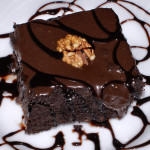
If you are struggling with weight loss, you may not understand why you crave certain foods and why you sometimes just can’t stop eating.
The reason is that many refined and processed foods are specifically and deliberately designed to be addictive.*
Take sugar for example.
The food industry uses the term “bliss point” to describe the perfect level of sugar in a product – the point at which it is most pleasing to the consumer and likely to induce cravings, turning the product into a high-selling item.
Did you know that sugar uses the same neurological pathways as narcotics to hit the pleasure centre of the brain that send out the signals: “eat more, eat more.”
And salt.
Salt is invaluable to the food industry. Not only does it add a flavour burst to food, but it is also as a preservative increasing the shelf life and it masks some of the off-notes in the flavour of processed foods.
While natural salt is good for us (eg Celtic sea salt or Himalayan rock salt), the super refined salts that are added to processed foods are addictive and, in the amounts we consume, very bad for our health.
Then there’s fat. The food industry has discovered that there is no “bliss point” with fat. The more fat they add, the better people seem to like it.
So what they aim for with fat is something they call “mouth feel”. That’s the warm, gooey taste of cheese, or the satisfying feeling when you bite into crisp fried chicken. It rushes right to the same pleasure centres of the brain that sugar does, but fat is carrying twice as many calories, so it causes even more weight gain.
What about refined flour? That is addictive as well!
Wheat flour contains opioid peptides, influencing endorphin receptors in the brain (craving-inducers).
The gluten in wheat triggers inflammation and damages the gut lining.
Modern day wheat is engineered to be super starchy, raising your blood sugar levels and causing an insulin spike.
Flour is added to lots of things, like soy sauce, malt, chips, crackers and microwaved dinners. You might not realise how much flour you are eating, or why the cravings are being triggered.
The food industry does not like to use the term addiction, preferring instead to use words like “crave-ability” and “allure” to describe the foods they create.
The best way to avoid these traps is to stay away from refined and processed foods. There are no “nasties” in fruit and vegetables, and if you prepare your meals at home without using packaged flavours or sauces you can avoid all the addictive food traps.
* Michael Moss has written a great book: Salt, Sugar, Fat: How the Food Giants Hooked Us


